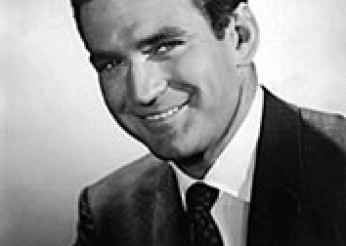Pulsating sexual energy remains raison'd'etre in all Kechiche films
The very name of the famous French philosopher in the name of Abdellatif Kechiche's debut film (Blame it on Voltaire) argues the author's eternal love of language and words. It culminated in his film La Graine et le mulet at Rijeka's prematurely ended Mediterranean Film Festival, screened under the title The Secret of the Grain, where a strong stream of French workers, immigrants, grandparents, parents and children, shipyard directors, bankers and local officials, participates in pulsating chatter that is practically uninterrupted at any moment. Their words and rhythms are different, just as visual film selections are directly associated with different modes of speech that affect the pace but also the type of relationship, whether it's about complicity, conflict, membership of a particular group or keeping to one's self. This use of words is a kind of modern Mediterranean version of what Jean Renoir used to do. It is a fully fledged 'Mediterranean' movie about the words used in an attempt to resolve the seemingly insurmountable problems, from the protagonist's attempts to get a loan to open a restaurant on an abandoned ship, to his stepdaughter's attempt to entertain guests with her enchanting belly dance while waiting for Godot, sorry, couscous (similar sensual dance scene is in the author's film Black Venus, but in an entirely different discourse).
In Kechiche's films, the heroine's sexual appetite is always compatible to that for food. That is why spaghetti in Blue Is the Warmest Colour and fish couscous in The Secret of the Grain are treated in the same way as eros. While lesbian echelon, led by the author of the comic Julie Maroh (Blue Is the Warmest Colour) adapted by Kechiche, resented the author's unconvincing scenes of lesbian sex, and the fact that he treated actresses as a tyrant, as if they forgot that the dominant theme of the film is not sex, but the difference between love predetermination and social determinism, which will lead to the collapse of their relationship. Of course, pulsating sexual energy remains raison'd'etre in all Kechiche films. Desire will always be complicated by miles, the hero's social status and speech / language, whether it's a lesbian relationship (Emma and Adele's in Blue Is the Warmest Colour) or a heterosexual one (Krimo and Lydia in The Game of Love and Chance, aware that they cannot escape their fate determined by class). But as much as teens and their swearing in The Game of Love and Chance are distanced from Marivaux just as their Parisian 'banlieue' is away from the Louvre, the French writer is incredibly present in the film (it is no wonder that its English translation was The Game of Love and Chance, which is actually the name of Marivaux piece that his young protagonists are rehearsing, just as the same author is also mentioned in Blue Is the Warmest Colour).
Also, in Blame it on Voltaire (La Faute a Voltaire), a Tunisian immigrant Jallel who is barely making it in Paris, wants his future bride Latifa to wear a white wedding dress. But she refuses to comply with his wishes, and that's where the second part of the film begins, one in which Jallel meets a young nymphomaniac Lucie (one of the first roles of the excellent Elodie Bouchez) in a psychiatric clinic, who he tries to seduce, though she scares him. As in Blue Is the Warmest Colour, the female sex becomes something predatory and insatiable, and Lucie's libidinal mouth remain open constantly, so her hunger for sex and food becomes a kind of precursor to Adele's identical passions, whether the latter has spaghetti or saliva coming out of her mouth. (Dragan Rubeša)
